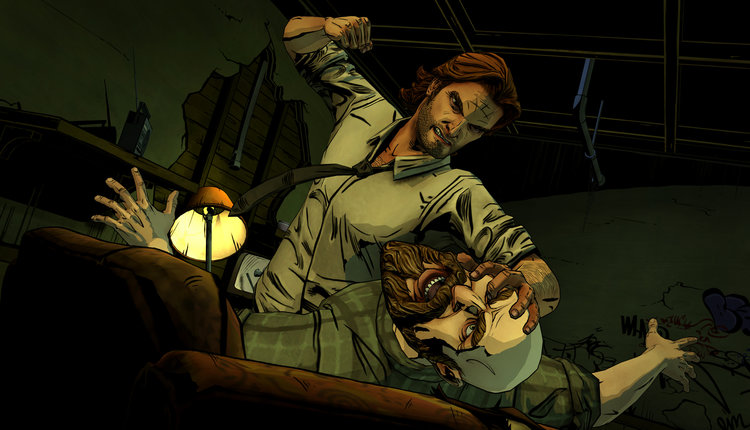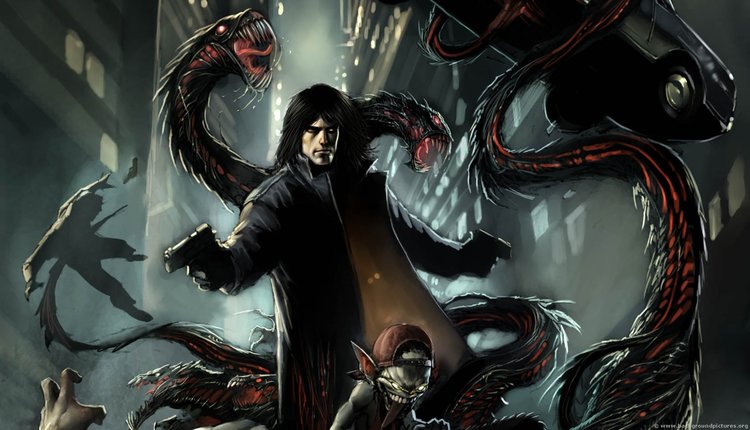The Lack of Urban Fantasy in Modern Gaming
It is always a common complaint in not only video games but in all modern forms of entertainment that the industry suffers from a lack of originality, simply reusing tired old genre and plot templates. I won’t waste your time by providing examples of this in the video game industry when you’ve no doubt already come up with at least one instance of such off the top of your head. Instead, I want to talk about a genre that, if anything, has gone almost criminally underused by the games industry, namely, the genre of Urban Fantasy.
Urban Fantasy, a setting that mixes our modern world with staples from the fantasy genre, is one that would seem ripe for gaming possibilities, possibilities that have already been demonstrated by the few urban fantasy games that exist. The Wolf Among Us, for instance, merges both an interesting detective story with a unique setting where creatures and people from classic fairy tales live in secret in a relatively modern city, while The Darkness, while not a perfect game by any means, adds a twist to a bog-standard FPS with the addition of supernatural powers.

As a genre, urban fantasy not only has the standard appeal of entering a fantastic or mystical realm that draws people into fantasy in general, but also fuses that with the relevance and resonance of connecting such fantastic elements to the real world. Rather than residing in Skyrim or Nilfgaard, the monsters hide in the dark corners of the cities we live in, in our homes or even our boardrooms, learning to adapt and possibly thriving in the 21st century. The possibilities promised by urban fantasy are great and varied.
Why then, it must be asked, has urban fantasy gone so underused by the games industry compared to others? Compared to the small mountains you could make out of both standard fantasy and sci-fi games released in the last five years alone, urban fantasy for some reason is a much more niche genre in gaming, which, aside from the two previously mentioned games, as well as The Secret World MMO and the now quite old Vampire: The Masquerade, has a very small library of games in comparison to other genres.
Admittedly, this strange lukewarm attitude towards urban fantasy is truer of western gaming as opposed to Japanese gaming, as Japanese companies have released several successful urban fantasy game series such as Devil May Cry, Persona and some iterations of Final Fantasy, but if anything, this success only makes urban fantasy’s absence from western gaming all the more obvious, as these games prove there is a market for it. And even then, outside of these series, even Japanese companies don’t use urban fantasy that much compared to cyberpunk, high fantasy or even post-apocalypse.

Some might contest me on this point, arguing that supernatural motifs in modern settings are in fact very common, but just fall under the genre of horror rather than urban fantasy, and would likely point to games such as Until Dawn, Silent Hill and so forth to back up their point. These hypothetical critics raise a good point, but I’d feel the need to rebut them for a couple of reasons.
The main issue I take with this argument is that throwing all modern paranormal games under the umbrella of horror limits the potential of these elements to their capacity to scare or unnerve the audience. It would be like the classic bugbear of classic fantasy stories of aping Tolkien in some way or another, with the main diversions from this trend being deliberate attempts to get away from Tolkien’s shadow. Works that take inspiration from Tolkien are valid, but it would be unfair to claim that the presence of such stories means other forms of fantasy are irrelevant.
Further, horror is unique as a genre in that it technically can be applied to any other form of genre fiction with barely any conflict. As Until Dawn uses supernatural elements to create horror, Prey and SOMA make chilling use of sci-fi elements to instill their terror. Urban fantasy has horror elements, and some horror has urban fantasy elements, but that does not mean that the two genres are interchangeable. To simply declare that horror games with supernatural elements are sufficient presence for urban fantasy would be like applying the same logic to sci-fi, despite this stance depriving us of games such as the Mass Effect series.
Yet still urban fantasy remains a very niche genre within gaming, and without any clear or obvious reason at that. To go back to a previous point, it is not as if urban fantasy is an unproven idea that represents some risk, even disregarding the genre’s success in both TV and literature, the positive reception to those few urban fantasy games that do exist would surely seem proof enough that people are interested.
[perfectpullquote align=”full” bordertop=”false” cite=”” link=”” color=”#70006C” class=”” size=”19"]”Its no secret that some stylistic genres match well to specific gaming genres”[/[/perfectpullquote]p>
Perhaps the reason for this overall lack of attention is that urban fantasy is not a genre that trivially easy to link to a specific game genre, such as FPS or RTS. Its no secret that some stylistic genres match well to specific gaming genres, which in turn makes such games comparatively easier to design. When all else fails, a high fantasy game can be easily ported to some manner of RPG format, while any game set in WWII will make a decent shooter. By contrast, urban fantasy has been used in RPGs, shooters and even that weird pseudo-visual novel style Telltale games use, with none so far particularly standing out as a naturally better fit.
Another possible reason could be the lack of an easy to reference template for less creative products. As previously mentioned, anyone who wants to phone in the story of a high fantasy game can easily crib notes from Tolkien, Warcraft and numerous others. Similarly, if writing a sci-fi game, Star Trek, Neuromancer and others provide straightforward baselines for each given branch of sci-fi. Urban fantasy, while a prolific genre, does not have what you might call an archetypical example of the genre that serves as a sort of ‘generic’ template for anyone wishing to do a story in that genre.
In truth, this might actually be a boon for any future urban fantasy games, insofar as said games are more likely to be individually creative, as opposed to simply taking elements from pre-existing properties to make an easily marketable game. Of course, by the same token, it may take until such a property impacts on the collective consciousness for urban fantasy to get its due in gaming.
Perhaps if that ever happened, urban fantasy might even suffer the same fate of other genres of becoming largely homogeneous near-identical releases with the occasional spark of uniqueness in the rough. But even so, at least there’d be even more types of identical games to choose from, making the game industry as a whole that little bit more varied.

